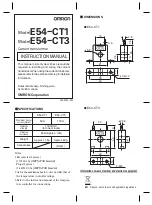
44
MDS 4710/9710 Technical Manual
MDS 05-3305A01, Rev. E
7.0
GLOSSARY OF TERMS
If you are new to digital radio systems, some of the terms used in this
guide may be unfamiliar. The following glossary explains many of these
terms and will prove helpful in understanding the operation of the trans-
ceiver.
Active Messaging
—This is a mode of diagnostic gathering that may
interrupt SCADA system polling communications (contrast with
pas-
sive messaging
). Active (or intrusive) messaging is much faster than
passive messaging because it is not dependent upon the RTU polling
cycle.
Antenna System Gain
—A figure, normally expressed in dB, repre-
senting the power increase resulting from the use of a gain-type antenna.
System losses (from the feedline and coaxial connectors, for example)
are subtracted from this figure to calculate the total antenna system gain.
Bit
—The smallest unit of digital data, often represented by a one or a
zero. Eight bits (plus start, stop, and parity bits) usually comprise a byte.
Bits-per-second
—See
BPS
.
BPS
—Bits-per-second. A measure of the information transfer rate of
digital data across a communication channel.
Byte
—A string of digital data usually made up of eight data bits and
start, stop and parity bits.
Decibel (dB)
—A measure computed from the ratio between two signal
levels. Frequently used to express the gain (or loss) of a system.
Data Circuit-terminating Equipment
—See
DCE
.
Data Communications Equipment
—See
DCE
.
Data Terminal Equipment
—See
DTE
.
dBi
—Decibels referenced to an “ideal” isotropic radiator in free space.
Frequently used to express antenna gain.
dBm
—Decibels referenced to one milliwatt. An absolute unit used to
measure signal power, as in transmitter power output, or received signal
strength.
DCE
—Data Circuit-terminating Equipment (or Data Communications
Equipment). In data communications terminology, this is the “modem”
side of a computer-to-modem connection. The MDS 4710/9710 is a
DCE device.
Digital Signal Processing
—See
DSP
.













































